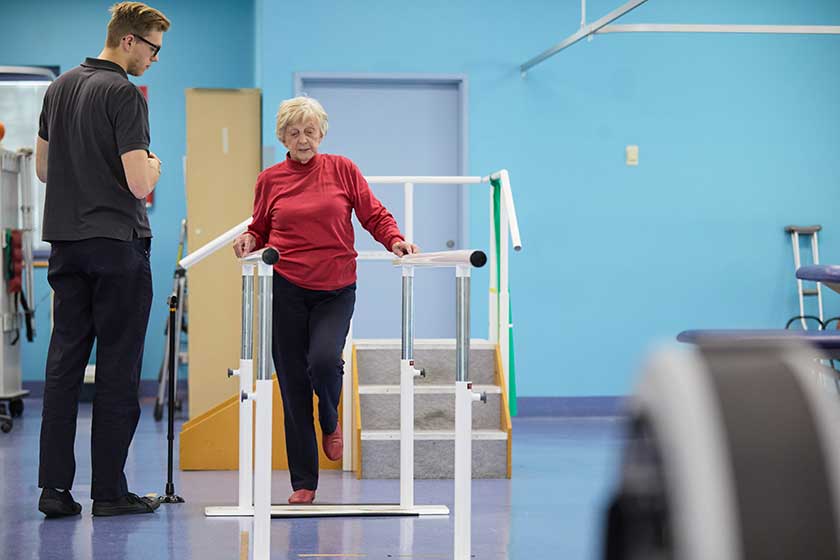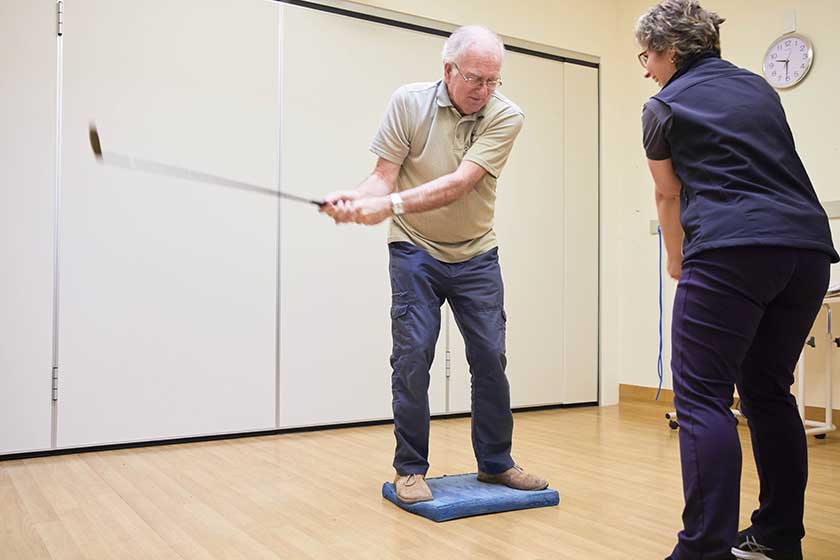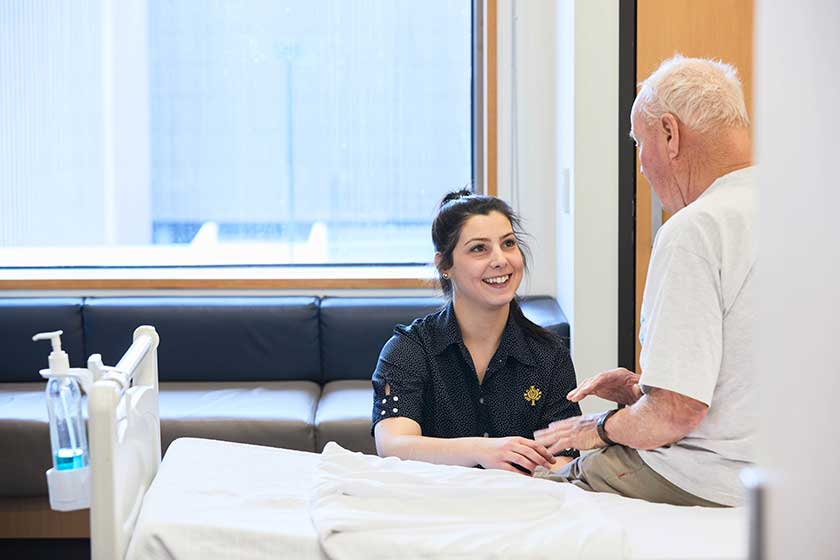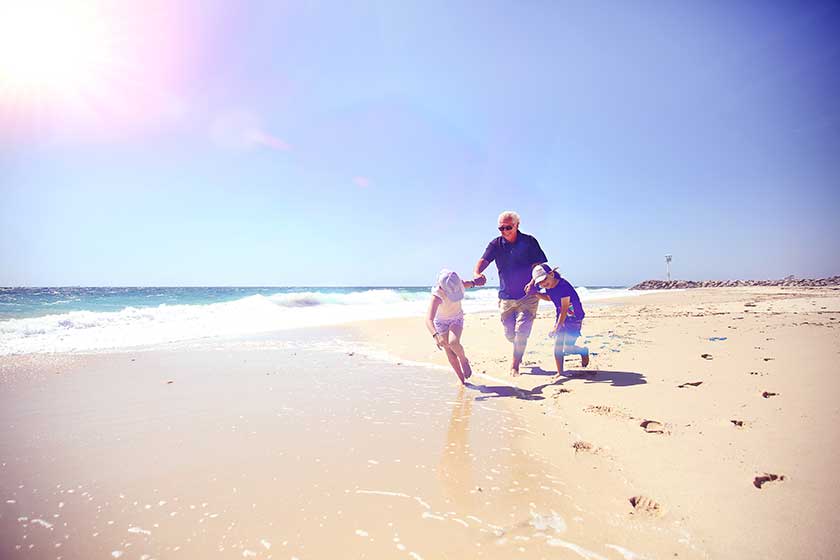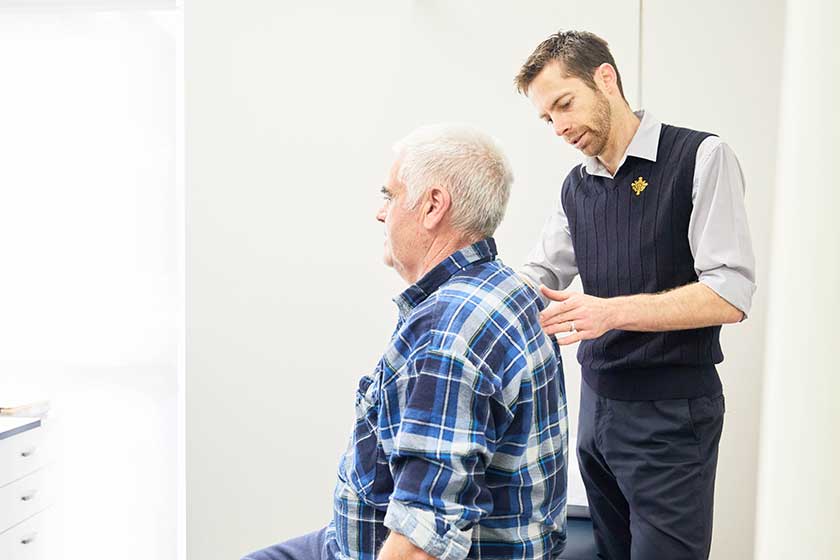Day one after orthopaedic surgery
You may still feel a bit groggy and tired on your first day after surgery. This is not uncommon. Our priorities are to manage your pain, early mobilisation and minimising post-operative complications.
During the first day you can expect:
- your doctor and physiotherapist to visit you in your room
- you may also be visited by your anaesthetist to make sure you have recovered from the effects of the surgery and your pain is manageable
- you will continue to have pain medications and you may see a pain management nurse, particularly if you are having trouble with your pain
- a blood test might be taken
- your nurses will regularly check your blood pressure, your pulse, temperature and breathing, and check your wound and drain it if needed
- a nurse will help you freshen up, usually this is done in bed rather than having a shower
- a physiotherapist and your nurses or assistants will help you stand and start some exercises to get your joint moving again. Mobilising early minimises your risk of getting a blood clot (deep venous thrombosis) in your leg or lungs
- if your surgeon uses a drain (which is not very common nowadays) or a catheter during surgery, this will be removed by end of the day.
Day two after orthopaedic surgery
Your second day after orthopaedic surgery will again be focused on managing your pain, for two reasons – any residual effects of anaesthetic will now have worn off and you may need additional pain medication and so you can start moving about.
On your second day:
- your doctor and physiotherapist will likely visit you to check your progress
- you may need an X-ray to check that everything is in place as expected
- your nurses will continue regularly checking your vitals and your wound
- your pain medication may change to tablets or injections as needed
- you’ll get up and have a shower with help from your nurse
- your exercises will continue and you may start moving around more (with the help of a nurse, a walking frame, or crutches)
- you can enjoy regular meals
- your nurse will ask you if you have had a bowel movement. This is to make sure that your digestive system is working as expected and the medications are not affecting it. If not, they may provide some medication to help you go to the toilet.
Day three after orthopaedic surgery
After two days in hospital you will start getting some more energy and begin to look forward to going home (you may even go home on this day).
During your third day in hospital:
- your doctor and physiotherapist will again visit and check on your progress. They will likely advise if you can go home or if you need to stay a bit longer in hospital
- your nurses will continue checking your vitals and wound
- pain medication will be provided, and you will get some advice on managing your pain when you get home
- your nurse will help you shower and get changed into your own clothes
- you will start walking with a frame or assistance three to four times during the day and go through a series of exercises to get your joint moving again
- if you have a catheter, this will be removed and your nurse will check if you have had a bowel movement again.
Day four after orthopaedic surgery
As long as your pain is under control and you are generally feeling well, you will most likely be going home.
Make sure you have someone who can take you home and stay with you for the first few days just to make sure your recovery continues as expected and can help you seek help if needed.
Preparing to go home:
- your doctor or physiotherapist may visit once again if they have not previously given you the all clear to go home
- your vitals and wound will be checked once more
- you will be provided pain medication or information to help you manage your pain. You may be given a script to collect some additional medications at the pharmacy
- your nurse will help you change into your regular clothes so you are ready to go home
- you will continue your exercises to get you moving again
- your nurse and physiotherapist will remind you how to use your mobility aids such as crutches or walking frames so you can stay mobile when you go home
- you will go through a discharge meeting with your nurse who will help you prepare to go home. They will provide you with helpful tips and advice on where to get walking aids or support aids as needed. They will also arrange for to other health professionals such as wound care nurses to visit you at home

